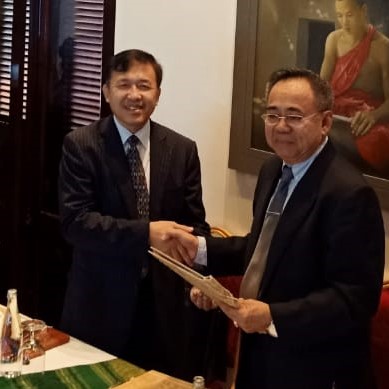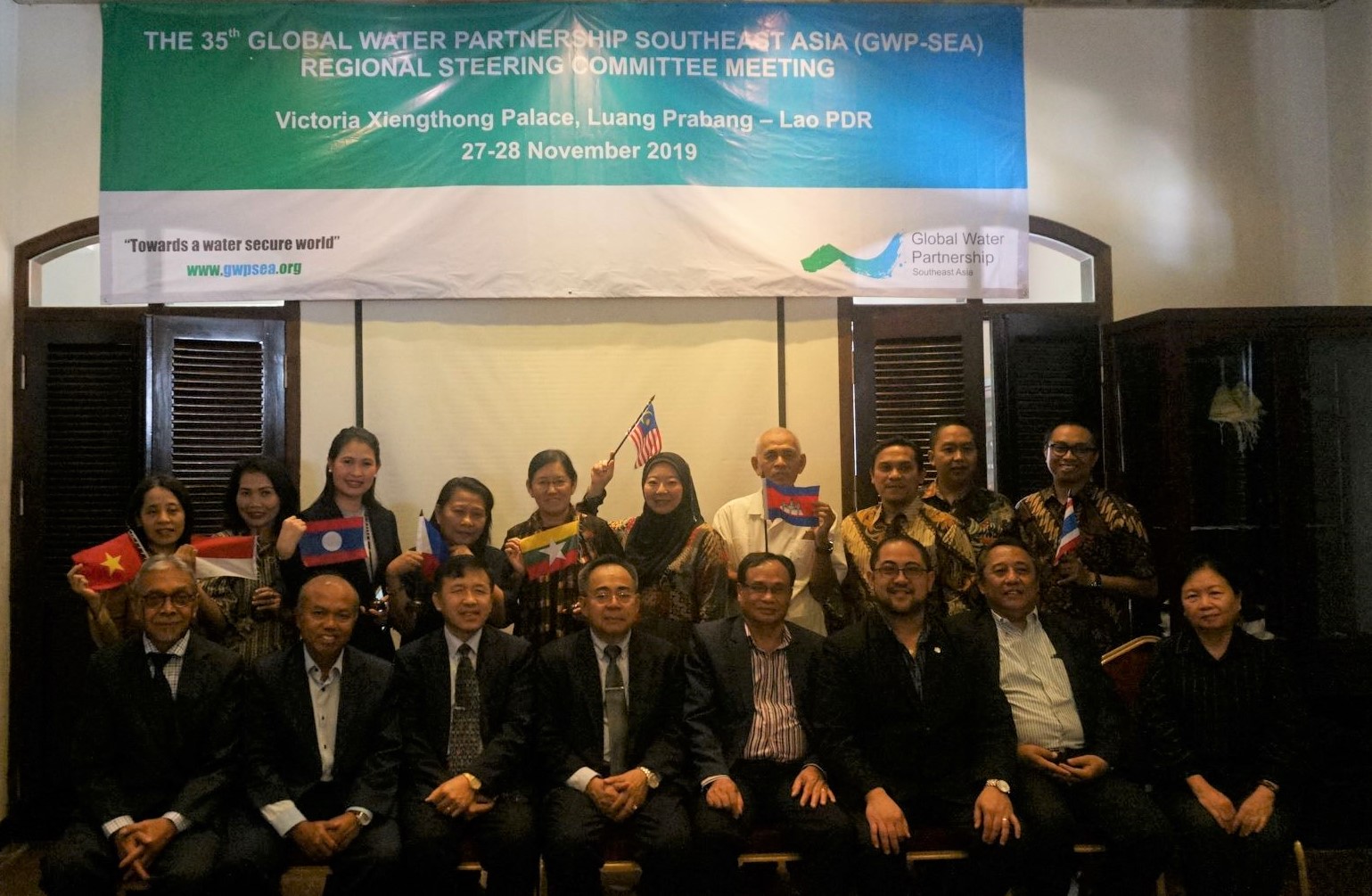The 35th Regional Steering Commitee Meeting was held on 27-28 November 2019 at Luang Prabang, Lao PDR. The 2 days meeting was held to meet several objectives such as:
- Inauguration of the elected GWP SEA Chairperson for 2019-2021
- Introduce the new GWP strategy 2020-2025;
- Review the implementation of GWP-SEA 2019 work plan/2017-2019 3-years work program;
- Agree on the 2020-2022 3-years work program;
- Agree on the GWP SEA 2020 annual work plan and budget;
- Decide the date and place of the 36th GWP-SEA RSC meeting
- Receive input for the improvement of the GWP-SEA monitoring dashboard
The new GWP-SEA chairman Dr. Inthavy Akkharath of Lao PDR (seated at the front row, number 4 from the left) was selected as the new chair from November 2019 - November 2022 based on the evaluation results from the Selection Committee following the end of assignment for Mr. H.E. Watt Botkosal of Cambodia (seated at the front row number 3 from the left).
Based on the lesson from the past 3 years work program implementation and the current GWP-SEA initiatives, the newly 3 years work program 2020-2022 will support the implementation of the UNEP's IWRM monitoring through the implementation of SDG 6.5.1 on IWRM.

Figure 1. Inaguration of the GWP-SEA Chairman processes (left: Mr. H.E. Watt Botkosal; Right: Dr. Inthavy Akkharath)
The 3 years work program will consist of 3 major activity with details as follow. The first year is IWRM readiness & performance assessment (2020), then follow by response formulation (2021), and Implementation (2022).
On the first year (2020), GWP-SEA and its CWPs will focus on developing a comprehensive tool to assess IWRM readiness and performance. This tool will not compete with the current UNEP IWRM monitoring assessment, but will become a complementary and a working-tool that will be tested in our region. At the same time, CWPs are agree to support UNEP 2020 IWRM survey.
On the second year (2021), GWP-SEA and its CWPs will focus on identification of priority areas and key challenges. This will be done through a national IWRM conference. The difference between GWP-SEA conference and other IWRM related conference will be on the targeted problem-solution at respective country. Each CWPs will support its government in identifying challenges in implementing IWRM (a multi stakeholder perspective paper) while the selected conference participants will propose solution (i.e technological aspects) to the correnspond challenges. Other follow-up activities are: Formulation of responses (CWPs), Joint project development (CWPs), and Resource mobilization (CWPs).
The last year of of the 3 years work program (2022) will follow up on the implementation of identified activity from the 2nd year (CWPs), and hold a Regional IWRM Conference on the transboundary river basin (Regional/ GWP-SEA).
The other importance issues that have been discussed and decided were:
- the RSCs agreed that the new Host Institution candidate will only based on Indonesia. The impact of this decision is the regional secretariat will still based at Jakarta - Indonesia.
- The General Assembly meeting will be held together with the 36th RSC meeting in 2020. The location of the 2020 RSC meeting still subject to discussion and the costs effectiveness.
- The accreditation of the oldest CWPs network (Indonesia, Malaysia and Philippines that were established in 2002) will be reviewed in 2020 considering the changes of the situation over the time.
- The RSC agreed on the proposed 3 years work program to be focusing on SDG 6.5.1 including transboundary SDG 6.5.2 (to be aligned with UNEP’s IWRM survey). In addition, GWP-SEA will also develop together the IWRM Readiness and Performance assessment along the way with GWP own brand.
-AW-
